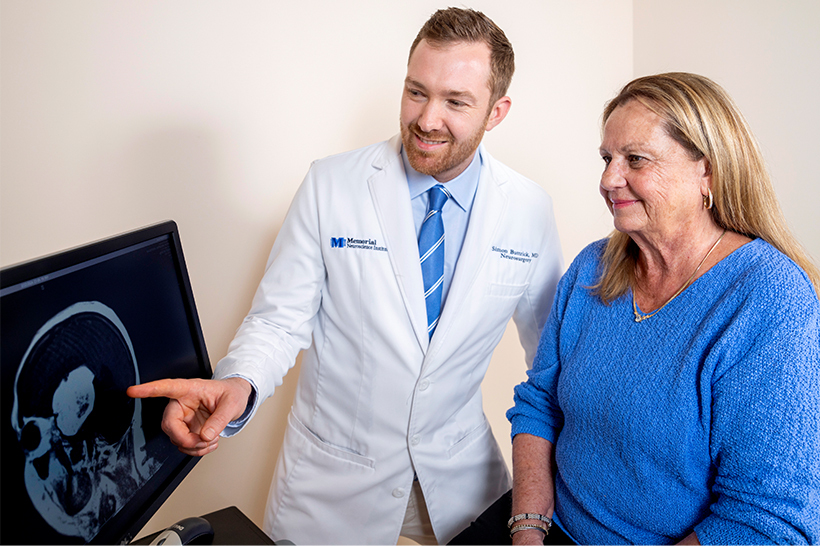Some brain tumors, such as acoustic neuromas and pituitary adenomas, occur at the base of the skull and are classified as skull base tumors. Because this region has many blood vessels and nerves, treatment often requires highly specialized care.
How Common Are Brain Tumors?
Metastatic brain tumors are the most common type of brain tumor. Each year in the U.S., the approximate number of people diagnosed with brain tumors includes:
- Metastatic brain tumors: 200,000
- Non-cancerous primary brain tumors: 57,000
- Cancerous primary brain tumors: 25,000
Cancerous primary brain tumors are relatively rare compared with other cancers. They account for approximately one percent of all new cancer cases.
Brain Tumor Symptoms
Brain tumor symptoms depend on the tumor type, location and size. Small tumors may not cause any noticeable symptoms. As a tumor grows, it may press on areas of the brain that control certain functions. If the tumor is fast-growing, symptoms can worsen rapidly.
Common brain tumor symptoms include:
- Headaches
- Changes in personality, behavior and mood
- Loss of balance and difficulty moving
- Nausea and vomiting
- Problems with thought, memory, speech, hearing and vision
- Weakness and numbness in the face or body
- Seizures
Diagnosing Brain Tumors
The first step in diagnosing a brain tumor is to review your symptoms and medical history. Your doctor may also perform a neurological exam to evaluate:
- Involuntary processes, such as breathing and heart rate
- Memory and thinking
- Reflexes, balance and coordination
- Senses, such as vision, smell and hearing
Diagnosis typically involves one or more of the following tests:
- Biopsy: A biopsy is a procedure to remove a tissue sample for laboratory analysis. It’s the only way to determine the tumor type conclusively. Our pathologists can determine whether the cells are abnormal and what kind of cancer is present. During a biopsy, the surgeon may remove as much of the tumor as possible to avoid a second surgery.
- Blood tests: Blood tests detect chemicals in your blood called biomarkers that may indicate cancer.
- Genetic tests: In some cases, your doctor may test the tissue for genetic changes. This information provides a better understanding of the tumor. It also helps determine which cancer treatments may be most effective.
- Imaging tests: CT, MRI and PET scans provide detailed pictures of your brain. They show the size and location of a tumor and help your doctor plan treatment.
- Neurological exam: We ask a series of questions and administer simple tests to check your brain, spinal cord and nerve function. The neuro exam gives us information about your mental status, coordination, senses, reflexes and more.
- Visual field exam: This assesses the total area of your vision. It can help determine whether something is affecting the area of your brain that controls sight.

















